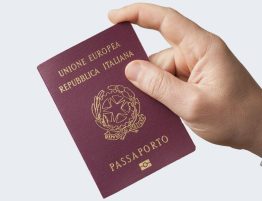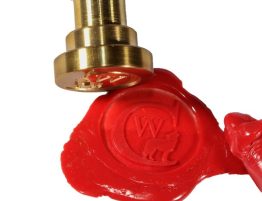
On 16 May 2017 the CFDA – China Food and Drug Administration published a third batch in the list of the Class I and II medical devices which will no longer need clinical trials to obtain registration
The market for medical devices in China is constantly evolving. The exemption from the obligation to carry out clinical trials to obtain registration of a medical device in China is at present a matter of particular interest to the CFDA.
As a general rule, in order to obtain the registration of a medical device in China, it is necessary to conduct preventive clinical trials, with the exception of those devices for which substantial equivalence with another already registered device can be demonstrated: in such cases, the applicant may avoid conducting clinical trials and may base its clinical evaluation on the data of another device instead. This possibility is expressly provided for in Article 22 of the «Provisions for Medical Device Registration» according to which, in order to be able to request the registration of a Class II or Class III medical device (i.e. those with a higher degree of risk to the health of the patient) preventive clinical trials must be carried out, unless there is evidence demonstrating the substantial equivalence of the device in question to another already registered for distribution in China.
CFDA’s «Technical Guidelines for clinical evaluation of medical devices» explains what an equivalent medical device is, for the purpose of obtaining the registration of a new device. It specifies (point VI.I.1) that, in order to be able to be registered on the basis of an equivalence assessment, the applicant must make a comparison between the two devices (the one for which it seeks registration, and the one of reference, which could also be registered by another person) and, basically relying upon clinical studies carried out on another device that has already been registered in China, demonstrate the substantial, but also actual overlapping between the two devices. The key points are, as always, the safety and efficacy which must be demonstrated with reference to any essential component of the device (structure, materials, production process, compliance with national standards, bio-compatibility evaluation etc.)
In this respect, the Chinese legal framework is continuing its alignment process with what was already provided both by the United States and Europe, and in particular the recent 2017/745 and 2017/746 Regulations of 5 April 2017 concerning medical devices and IVDs (i.e. in vitro diagnostic medical devices).
This article mainly concerns the regulation of Class II and Class III devices, namely those which, according to the «Regulations for the Supervision and Administration of Medical Devices» require controls that are higher than the routine ones in order to ensure their safety and effectiveness (Class II) and those that are implanted in the human body, or used for life support, or that, more generally, pose potential risks to the patient (Class III).
For these classes of medical devices, the CFDA has long been carrying out an operation to identify those categories of devices which may be exempted from clinical trials. In May this year, through a note from the office for the control of the register of medical devices held at the CFDA, the administration opened a discussion with all stakeholders on the possibility of not having to run clinical tests on certain Class II and Class III devices (just to make some examples: certain surgical implantable devices; certain equipment for endoscopic surgery; certain equipment for dental surgery), asking all the interested parties to submit their comments by 20 June. Through a parallel note a similar initiative was undertaken with regard to certain IVDs, namely in vitro diagnostic medical devices.
This operation, which has already included a third batch of products in the list of exempt devices, allows the company to apply for the registration of the device without the need to submit clinical trials either for its own or for equivalent devices. In fact, the technical guidelines (point V) state that the applicant must only demonstrate that the characteristics of the device for which registration is sought correspond to those of the device included in the catalog of medical devices exempted from clinical trials.
The Class III medical devices for which clinical trials pose high risks to human health are the exception to the above: in such case, Article 24 of the «Provisions for Medical Device Registration» requires that a list of such devices be kept by the CFDA and that the clinical trials are in this case subject to the express approval of the CFDA itself. Accordingly, the «Technical Guidelines for clinical evaluation of medical devices» provides that clinical trials must be conducted for this type of specific devices in China and that it is forbidden to resort to the substantial equivalence with another device.
In conclusion, the three following categories can be identified: 1) Class II and III medical devices that the CFDA is gradually adding to the list of devices that are exempted from clinical trials; 2) Class II e III medical devices which are not included in that list, but for which it is possible to apply for registration in China on the basis of clinical evidence coming from a substantially equivalent device that has already been registered in China; 3) Class III medical devices, the clinical trials of which pose high risks to human health, and which can therefore be registered in China only after the carrying out of clinical trials that have to be expressly authorized by the CFDA and must be held in China.
The CFDA is therefore continuing to provide China with a more and more comprehensive regulation ‒ and in many ways overlapping with the one laid down by the European Union, and above all with the one of the United States ‒ to allow producers and distributors of medical devices registered both in China and abroad to offer their products under increasingly competitive conditions but at the same time without sacrificing the products’ effectiveness or the patients’ safety.
(Shanghai Office – Andrea Sorgato – 0086 21 51501952)








